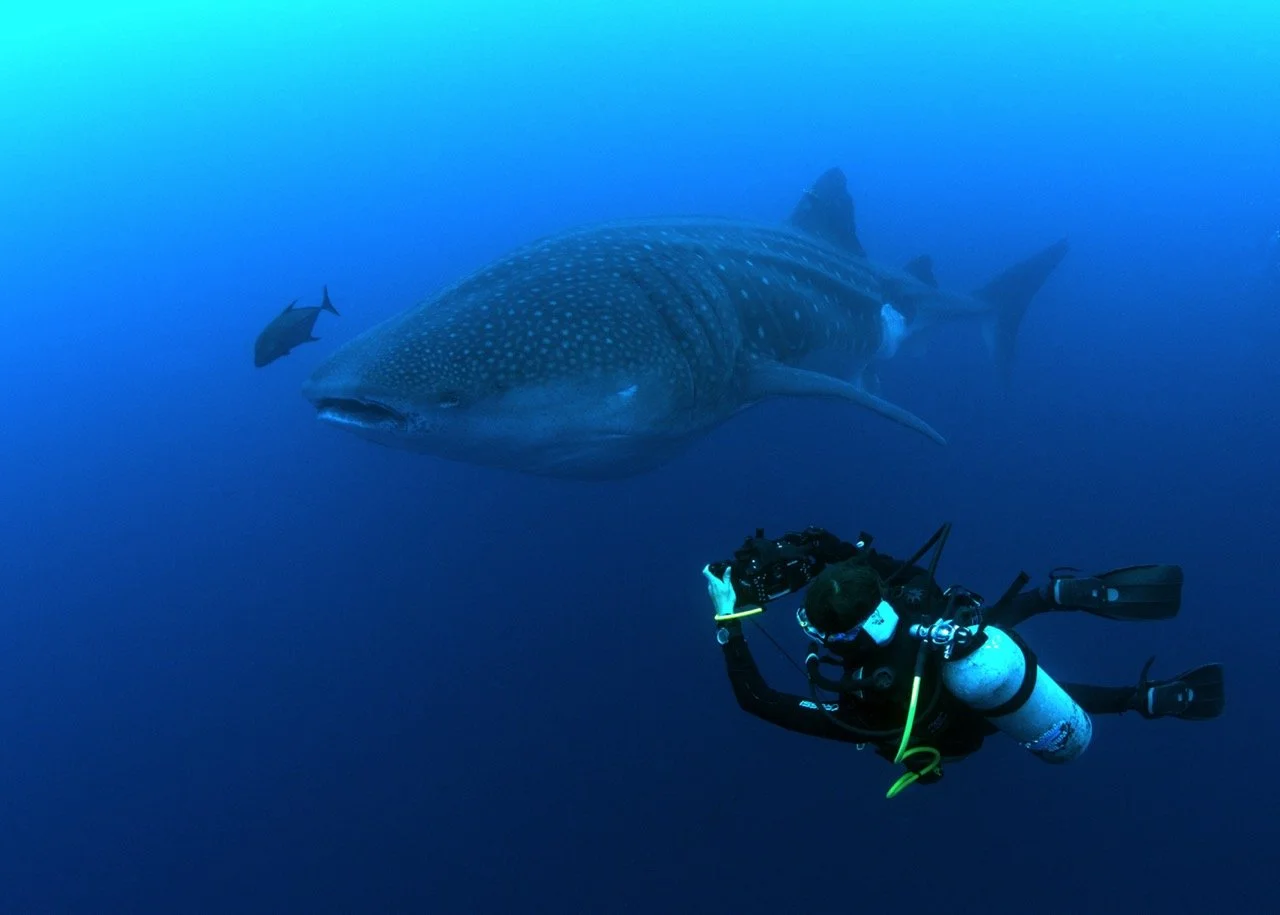MIGRATORY ROUTE OF WHALE SHARKS
The Galapagos Whale Shark Project aims to identify and protect newly discovered aggregation sites of endangered whale sharks in the southern and western Galapagos through satellite tagging, research, and community-led citizen science. The project strengthens marine conservation and community resilience by involving locals in ocean stewardship while informing regional marine policy and protected area planning.
The Issue:
Whale sharks—gentle, migratory giants critical to marine ecosystems—are experiencing a sharp global population decline, with over 50% lost in the last 75 years due to fisheries, bycatch, and vessel strikes. In the Galapagos, these iconic animals are vital not only to marine biodiversity but also to the local ecotourism economy that sustains over 90% of the population. While the Galapagos Marine Reserve offers some protection, whale sharks’ vast migratory routes extend beyond these boundaries, exposing them to ongoing threats. Recent community-reported sightings of whale sharks in the southern and western regions of the archipelago point to previously undocumented aggregation sites—key knowledge gaps that must be addressed to ensure their survival and inform future marine protection efforts.
Grant Award Use:
With ATCF funding, the project will expand research expeditions to these new whale shark aggregation areas, support satellite tagging of at least five individuals, and enhance a citizen science program that includes local guides, fishers, and youth. Funds will directly cover expedition logistics, tagging equipment, and community outreach efforts, with a focus on capacity building and inclusion. By combining scientific research with local engagement, the grant will help develop a regional whale shark monitoring database, influence policy through data-driven conservation, and foster long-term community ownership of marine stewardship.
What Would a Successful Project Result In?
A successful outcome would be the long-term protection of whale sharks and their migratory corridors in the Eastern Tropical Pacific, secured through data-informed policy and an empowered Galapagos community that actively contributes to—and benefits from—marine conservation.
Voices From The Community:
"Receiving the grant from the Adventure Travel Conservation Fund is a vital step in continuing our whale shark research in the Galapagos Islands, enabling us to expand into newly identified study sites in the south and west of the archipelago. These regions host little-known whale shark constellations whose habitat use and ecology remain largely unexplored. For over a decade, our team has studied the northern aggregation from Darwin Island and tracked their movements across the Eastern Tropical Pacific and the high seas to better understand how to protect them, yet their seasonal movements within the region remain a mystery. This grant will allow us to gather baseline data to uncover these missing pieces of their life history and use that knowledge to strengthen conservation strategies for this endangered species." — Sofía Green Iturralde, Principal Scientist, Chief Operating Officer, Research and Outreach Specialist; Galapagos Whale Shark Project







